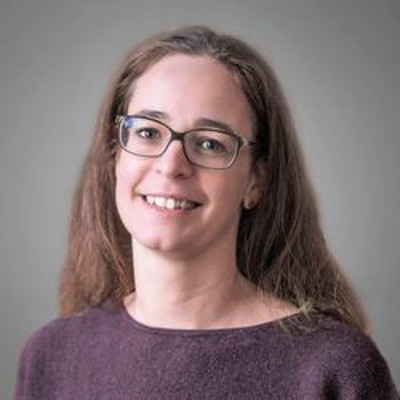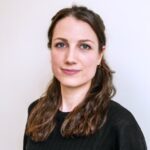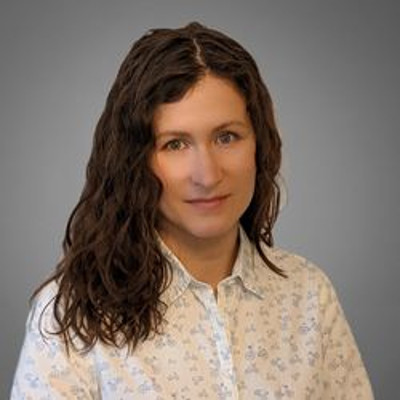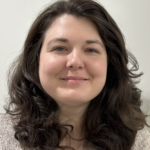C02
Variation in Situated Interaction II: Modeling real life situations
C02 experimentally explores various aspects of situational-functional variation. Our work focusses in particular on the effects of the social role of the addressee (superior, equal perceived social status) but also including age and gender of the interlocutors, the function of a discourse (i.e. request or casual conversation) and as a new aspect, the effect of a physical space (i.e. home vs. laboratory or police station vs. office) on the realization of fine phonetic detail. Because our experimental setup is so complex and aspects of a situation – potentially having an effect on fine phonetic detail – have not yet been rigorously controlled and tested, methodological advances (immersive technology) of the sort proposed for phase II of the CRC are warranted. Statistical modelling of our results will allow for a better understanding of the contribution of the individual language external parameters to the outcome of a study.
Members
Project leader
Postdoc
Former members
Contact
Project in Phase I
Project Title for Phase I
Variation in situated interaction
Project Description for Phase I
Project C02 focusses on the socially agreed-upon requirements and interactions of the discourse functions, discourse situation, and social characteristics of the addressee on the intra-individual variation at the lexical, phonetic/phonological and posture levels. The idea is to develop a novel methodology to study Situated Interaction in which language users complete verbal tasks towards an interlocutor presented on video. This experimental set-up enables the elicitation of production data in a range of systematically controlled discourse and functional situations, unlikely to be found in naturalistic data (or speech corpora). Perception tests will then assess language-users’ expectations and attitudes towards speech variation of speakers in these different situations.
Publications & Presentations
Oschkinat, Miriam; Bischof, Denise; Weirich, Melanie; Jannedy, Stefanie (2025) MetaHumans as holistic Personae for implementation into Virtual Reality In: P&P 20. Martin-Luther-Universität Halle-Wittenberg [ViVo] Oschkinat, Miriam; Weirich, Melanie; Duran, Daniel; Jannedy, Stefanie (2025) Register effects of imagined addressees on f0 across generations In: JASA Express Letters [ViVo] Duran, Daniel; Weirich, Melanie; Jannedy, Stefanie (2025) Experimental assessment of phonetic register variation in situated interaction In: Register Studies [ViVo] Duran, Daniel; Weirich, Melanie; Bernau, Natalie; Jannedy, Stefanie (2023) Eliciting phonetic register variation via app In: 19. Tagung Phonetik und Phonologie im deutschsprachigen Raum (P&P) [DOI] [ViVo] Pescuma, Valentina Nicole; Serova, Dina; Lukassek, Julia; Sauermann, Antje; Schäfer, Roland; Adli, Aria; Bildhauer, Felix; Egg, Markus; Hülk, Kristina; Ito, Aine; Jannedy, Stefanie; Kordoni, Valia; Kühnast, Milena; Kutscher, Silvia; Lange, Robert; Lehmann, Nico; Liu, Mingya; Lütke, Beate; Maquate, Katja; Mooshammer, Christine; Mortezapour, Vahid; Müller, Stefan; Norde, Muriel; Pankratz, Elizabeth; Patarroyo, Angela Giovanna; Plesca, Ana-Maria; Ronderos, Camilo R.; Rotter, Stephanie; Sauerland, Uli; Schulte, Britta; Schüppenhauer, Gediminas; Sell, Bianca Maria; Solt, Stephanie; Terada, Megumi; Tsiapou, Dimitra; Verhoeven, Elisabeth; Weirich, Melanie; Wiese, Heike; Zaruba, Kathy; Zeige, Lars Erik; Lüdeling, Anke; Knoeferle, Pia; Schnelle, Gohar (2023) Situating language register across the ages, languages, modalities, and cultural aspects: Evidence from complementary methods In: Frontiers in Psychology [DOI] [ViVo] In the present review paper by members of the collaborative research center ‘Register: Language Users’ Knowledge of SituationalFunctional Variation’ (CRC 1412), we assess the pervasiveness of register phenomena across different time periods, languages, modalities, and cultures. We define ‘register’ as recurring variation in language use depending on the function of language and on the social situation. Informed by rich data, we aim to better understand and model the knowledge involved in situation- and function-based use of language register. In order to achieve this goal, we are using complementary methods and measures. In the review, we start by clarifying the concept of ‘register’, by reviewing the state of the art, and by setting out our methods and modeling goals. Against this background, we discuss three key challenges, two at the methodological level and one at the theoretical level: 1. To better uncover registers in text and spoken corpora, we propose changes to established analytical approaches. 2. To tease apart between-subject variability from the linguistic variability at issue (intra-individual situation based register variability), we use within-subject designs and the modeling of individuals’ social, language, and educational background. 3. We highlight a gap in cognitive modeling, viz. modeling the mental representations of register (processing), and present our first attempts at filling this gap. We argue that the targeted use of multiple complementary methods and measures supports investigating the pervasiveness of register phenomena and yields comprehensive insights into the cross-methodological robustness of register-related language variability. These comprehensive insights in turn provide a solid foundation for associated cognitive modeling.Jannedy, Stefanie; Duran, Daniel (2023) Register differences in ÄH-ÄHM filler particles? In: DiSS Workshop 2023 (Disfluency in Spontaneous Speech) [DOI] [ViVo] We present an analysis of register variation (i.e. conventionalized and socially recurring linguistic patterns of intra-individual speech behaviour) of filler particles in German spontaneous speech in contrasting situated interactions. In this study, we analyse intra- and inter-individual differences in the use of lexical type of filler particles and their phonetic realizations. Data was elicited with a novel method where participants talk to a video-taped interlocutor in a simulated tele-conference. This set-up allows us to systematically and consistently manipulate the experimental condition while eliciting laboratory induced differences in fine phonetic detail. We find evidence for register differences but also a high inter-individual variability.Duran, Daniel; Duran, Daniel; Weirich, Melanie (2023) Assessing Register Variation In Local Speech Rate In: the 20th international Congress of Phonetic Sciences, Prague. [ViVo] Duran, Daniel; Weirich, Melanie; Jannedy, Stefanie (2023) Eliciting phonetic register variation via app In: Phonetik & Phonologie im deutschsprachigen Raum (P&P) [ViVo] Jannedy, Stefanie; Weirich, Melanie (2023) Plapper – a smartphone app for self recording: Exploration of Vowel-Spaces In: Phonetics and Phonology in Europe 2023 (PaPE) [ViVo] Duran, Daniel; Weirich, Melanie; Jannedy, Stefanie (2023) Assessing register variation in local speech rate In: International Congress of Phonetic Sciences (ICPhS). Prague Congress Center [ViVo] We present findings on phonetic register variation (which refers to conventionalized and socially recurring linguistic patterns of intra-individual speech behavior) in contrasting situated interactions. In this study, we examine the differences in speech rate within individuals. Our data was collected using an innovative method where participants engage in simulated tele-conference conversations with a video-recorded interlocutor. Each participant experienced both a “formal” situation, such as requesting a deadline extension from a superior, and an “informal” one, like describing their favourite recipe to an acquaintance. The silent interlocutor persona appeared in two different styles, including variations in hair, clothing, and make-up. This experimental setup allows us to manipulate the conditions systematically and consistently, while eliciting subtle phonetic differences in the laboratory setting. Our hypothesis is that speech production slows down in formal situations due to processing and memory load constraints. Statistical analyses conducted on data from 45 German participants support our hypothesis, showing a decrease in speech rate in the formal condition.Jannedy, Stefanie; Brandt, Erika; Weirich, Melanie; Schüppenhauer, Gediminas (2021) Phonetic Register Coding in Formal and Informal Speech In: Phonetics and Phonology in Europe 2021 (PaPE) [ViVo] Jannedy, Stefanie; Brandt, Erika; Schüppenhauer, Gediminas; Witt, Johannes; Weirich, Melanie (2021) What Pauses tell us about Register In: Phonetik und Phonologie im deutschsprachigen Raum (P&P17) [ViVo] Weirich, Melanie; Jannedy, Stefanie; Schüppenhauer, Gediminas (2020) The Social Meaning of Contextualized Sibilant Alternations in Berlin German In: Frontiers in Psychology [DOI] [ViVo] Lüdeling, Anke; Alexiadou, Artemis; Adli, Aria; Donhauser, Karin; Dreyer, Malte; Egg, Markus; Feulner, Anna Helene; Gagarina, Natalia; Hock, Wolfgang; Jannedy, Stefanie; Kammerzell, Frank; Knoeferle, Pia; Krause, Thomas; Krifka, Manfred; Kutscher, Silvia; Lütke, Beate; McFadden, Thomas; Meyer, Roland; Mooshammer, Christine; Müller, Stefan; Maquate, Katja; Norde, Muriel; Sauerland, Uli; Szucsich, Luka; Verhoeven, Elisabeth; Waltereit, Richard; Wolfsgruber, Anne; Zeige, Lars Erik (2020) Register: Language Users’ Knowledge of Situational-Functional Variation In: REALIS: Register Aspects of Language in Situation [DOI] [ViVo] The Collaborative Research Center 1412 “Register: Language Users’ Knowledge of Situational-Functional Variation” (CRC 1412) investigates the role of register in language, focusing in particular on what constitutes a language user’s register knowledge and which situational-functional factors determine a user’s choices. The following paper is an extract from the frame text of the proposal for the CRC 1412, which was submitted to the Deutsche Forschungsgemeinschaft in 2019, followed by a successful onsite evaluation that took place in 2019. The CRC 1412 then started its work on January 1, 2020. The theoretical part of the frame text gives an extensive overview of the theoretical and empirical perspectives on register knowledge from the viewpoint of 2019. Due to the high collaborative effort of all PIs involved, the frame text is unique in its scope on register research, encompassing register-relevant aspects from variationist approaches, psycholinguistics, grammatical theory, acquisition theory, historical linguistics, phonology, phonetics, typology, corpus linguistics, and computational linguistics, as well as qualitative and quantitative modeling. Although our positions and hypotheses since its submission have developed further, the frame text is still a vital resource as a compilation of state-of-the-art register research and a documentation of the start of the CRC 1412. The theoretical part without administrative components therefore presents an ideal starter publication to kick off the CRC’s publication series REALIS. For an overview of the projects and more information on the CRC, see https://sfb1412.hu-berlin.de/.Jannedy, Stefanie (2023) Sprachexterne Faktoren haben Einfluss auf die Sprache: welche, wie und warum In: Kiel Linguistik Kolloquium [ViVo] Jannedy, Stefanie (2022) Der Einfluss sprachexterner Faktoren auf die gesprochene Sprache - Wer spricht wie mit wem und warum? In: Tagung der Deutschen Gesellschaft für Sprechwissenschaft und Sprecherziehung (DGSS): Stimme und Geschlecht im Wandel - Implikationen für Theorie und Praxis in der Sprechwissenschaft und Phonetik [ViVo] Schüppenhauer, Gediminas; Weirich, Melanie; Duran, Daniel; Jannedy, Stefanie (2022) Register Differences in Vowel Dispersion in Formal and Informal Situations In: 11th International Conference on Language Variation in Europe - ICLaVE|11 [ViVo] Brandt, Erika; Weirich, Melanie; Schüppenhauer, Gediminas; Jannedy, Stefanie (2021) An experimental approach to cross-situational variation of single speakers In: New Ways of Analyzing Variation (NWAV 49) [ViVo] Bischof, Denise; Weirich, Melanie; Jannedy, Stefanie; C02 Variation in situierter Interaktion; Oschkinat, Miriam () MetaHumans as holistic Personae for implementation into Virtual Reality In: P&P 20. Martin-Luther-Universität Halle-Wittenberg [ViVo]
Publications
2025
2023
2021
2020
Presentations
2023
2022
2021
News
News article on Plapper at Tagesspiegel Online
A news article at Tagesspiegel Online looks on Plapper
moreEvents
08/10/2023
1:10 pm - 2:40 pm
Prague
Acoustic manifestations of speech register – Special session at ICPhS
Special session at the 20th International Congress of the Phonetic Sciences (ICPhS) in Prague dedicated to Acoustic Manifestations of Speech Register.





